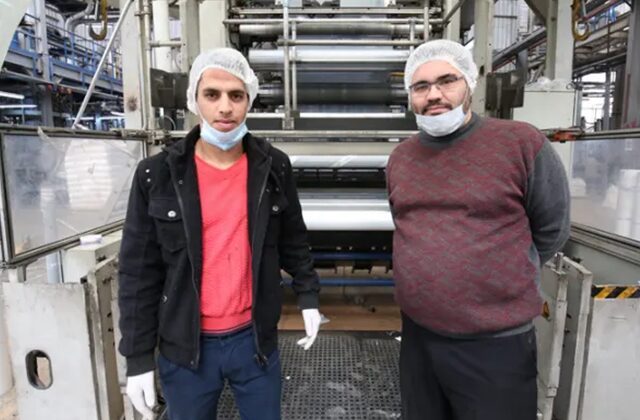Granting refugees the right to work can help revitalize economies
By Cindy Huang and Gideon Maltz
as published in
Devex
on November 8, 2019

By Cindy Huang and Gideon Maltz
The discussion of refugees focuses too often on high-income countries in North America and Europe. In fact, it falls to a handful of middle- and low-income countries, such as Lebanon, Kenya, and Bangladesh, to host the majority of refugees around the world — and indeed to host refugees from intractable crises, such as Syria, Somalia, and Myanmar, that are likely to prevent refugees from returning for years or decades.
These countries bear a tremendous responsibility — and deserve more credit than they get from the international community — but too often they limit their own potential by preventing the refugee populations they host from working or owning a business.
In most of these countries — where 85 percent of the world’s 25 million refugees live — there is one policy in particular that is vital but rarely utilized: those preventing refugees from working legally or starting a business. Even in places where refugees technically have the right to work, fees, permits, and other restrictions can significantly restrict conditions.
Research shows that when refugees can work formally, they have more productive work, and can make more money — which in turn means that refugees spend more money on local goods and services and generate more tax revenue. When refugees start their own businesses, they create more jobs for hosts. In Turkey, Syrian refugees have started more than 6,000 companies and created more than 55,000 jobs since 2011, to the benefit of citizens and the economy.
Refugees can also fill labor shortages and bring new skills where needed. And by stimulating the local economy and filling low-skill, low-paying jobs, refugees can open new opportunities for hosts, enabling them to work more and upgrade into better jobs. For example, during the recent influx of refugees to Jordan, refugees began filling lower-skilled informal sector jobs. As a result, Jordanians began upgrading to formal sector jobs that paid more.
In most of the countries that do not give refugees the legal right to work, refugees work illegally alongside the host community. Granting refugees the right to work should be especially beneficial in these contexts. First, it enables highly educated refugees to put their much-needed skills to better use. A Syrian doctor, for example, would not be able to apply her abilities in the informal sector — but she could in the formal market. Second, an increase in formal work should increase tax revenues without an increase in government spending.
Finally, while some politicians have attempted to shield citizen jobs by isolating refugees, that actually can make the consequences for citizen jobs worse. Some degree of job displacement from refugee inflows is real, but research shows that it tends to be larger in magnitude when refugees are concentrated in certain areas or sectors of the economy. Thus, giving refugees access to the formal labor market — rather than crowding them into a few types of jobs in the informal sector within a limited area — can significantly reduce the effects that policymakers seek to avoid by restricting refugees’ right to work.
Inevitably, there are some costs associated with granting refugees the right to work in the short term. These costs tend to disappear over time and are generally outweighed by economic and fiscal benefits — but they should nonetheless be taken seriously. With the support of the international community, policies can be implemented to mitigate costs and amplify benefits. For example, vocational training, job matching services, or short-term safety nets for the most vulnerable can help ease the transition.
For developing countries that are already hosting refugees, allowing refugees to work is the first step in increasing economic benefits. That means also allowing freedom of movement so that refugees can go where workers are needed, lowering administrative barriers to getting a work permit or starting a business, and helping hosts adjust to ensure the benefits of enabling refugees to work leave no one behind. These are all policy choices. With short-sighted policy choices, politicians risk wasting the potential contributions of thousands of refugees already living in their borders — with smart policy choices, they can reap the economic benefits for host communities and refugees alike.
 Tent Named to TIME100 Most Influential Companies List
Tent Named to TIME100 Most Influential Companies List